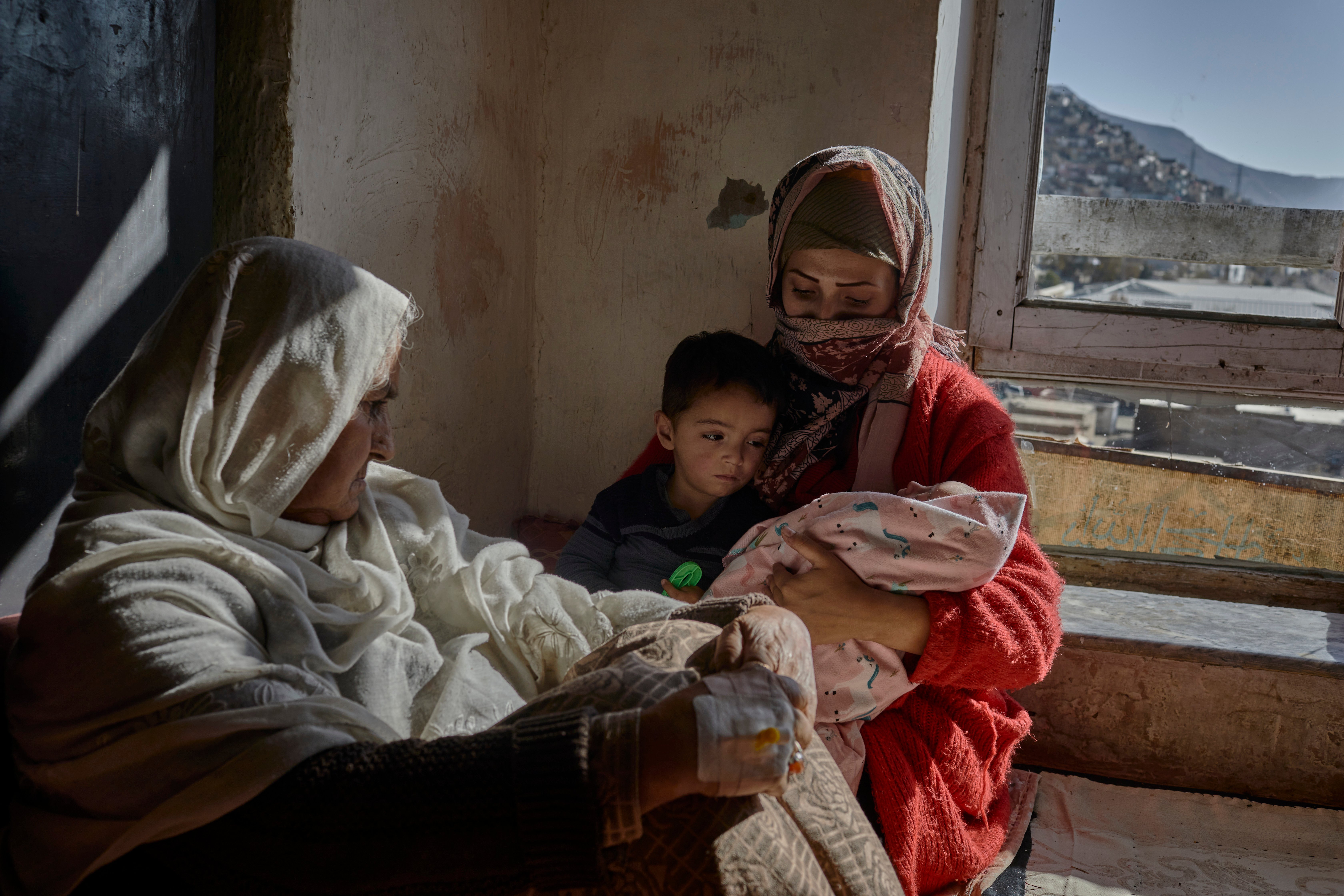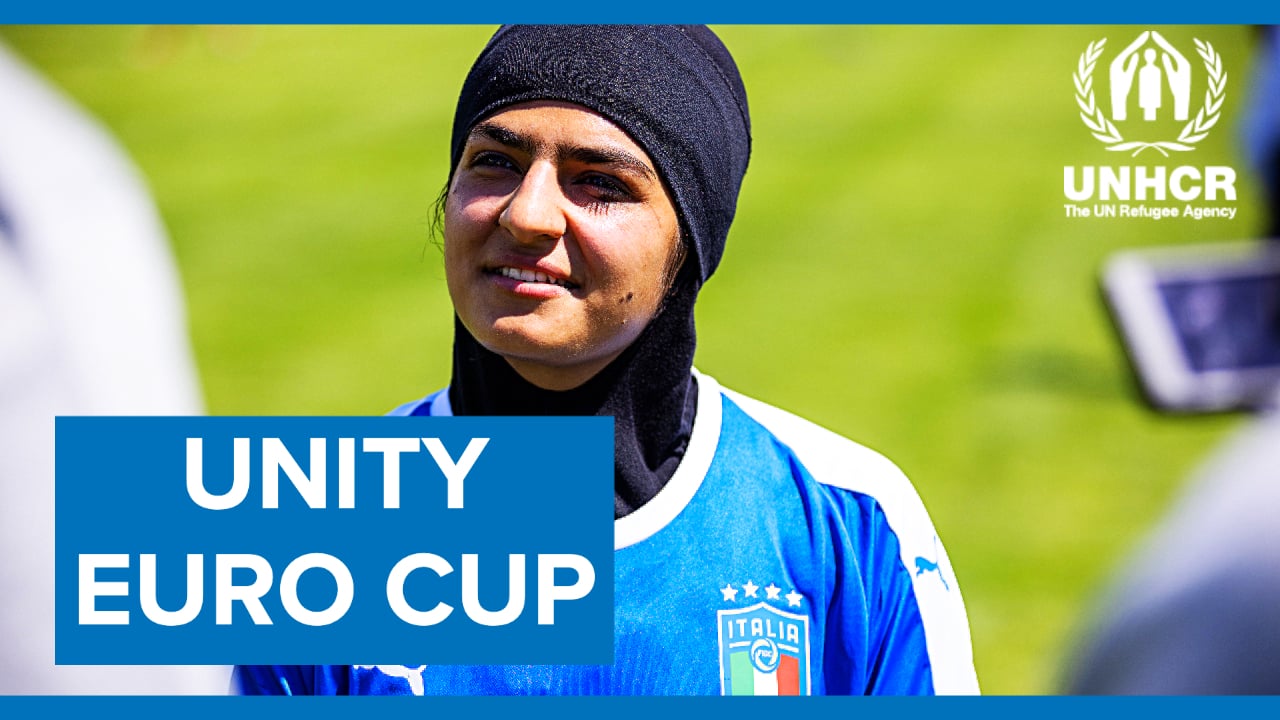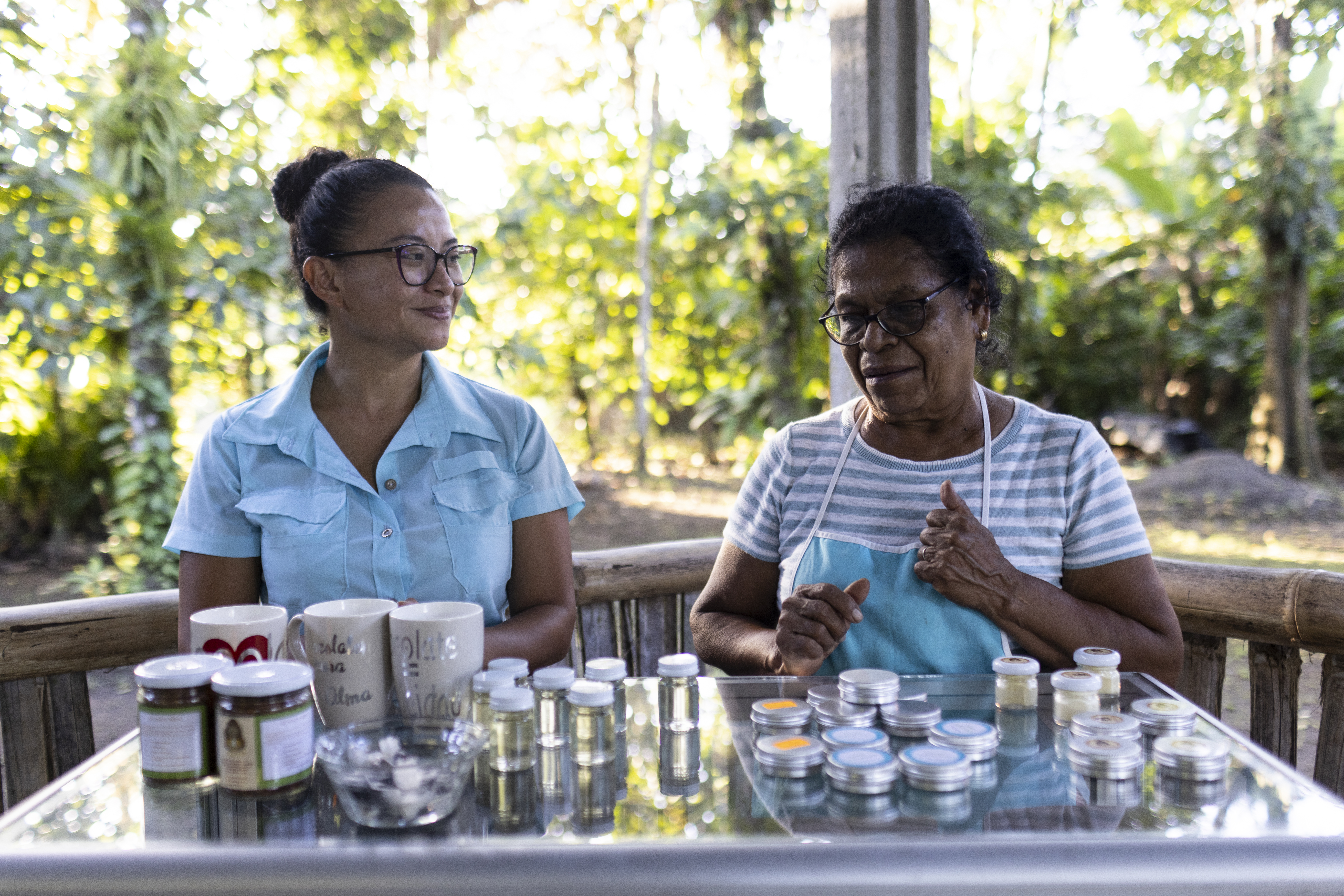UNHCR helps female returnees regain financial autonomy in Somaliland
UNHCR helps female returnees regain financial autonomy in Somaliland
GARBODADAR, Somaliland, January 9 (UNHCR) - The future looked grim for Elmi Kadhra and her nine children when they left a refugee camp in Ethiopia eight years ago and crossed the border into the self-declared Somaliland.
When they finally reached her home village, Garbodadar, in the Awdal region bordering Ethiopia and Djibouti, Kadhra says she found only "wild animals running around. This place was a battlefield, no one could stay here. I had lost everything to the war." That included her husband, who was killed by crossfire before they even reached sanctuary in Ethiopia some 15 years ago.
Most of the other 670,000 people who have repatriated to Somaliland over the past decade - mainly from Ethiopia and Djibouti - also found ruins. But with the help of UNHCR, Kadhra and other like-minded former refugees have rebuilt their lives and are thriving back in their homeland.
To support the sustainable reintegration of returnees, UNHCR has since the 1990s been rebuilding infrastructure and helping returnees - mostly women - find sources of income. The UN refugee agency helped build a school, police station and water well as more and more people started returning here.
Kadhra, meanwhile, had set up a teashop in Garbodadar to make some money to feed her family as she tended the 15 goats UNHCR gave to help her get started on her return. The horned ruminants and their descendants have provided a steady and vital supply of milk, meat and money over the years.
When UNHCR launched a small revolving fund four years ago, Kadhra was one of 50 women who formed a group and applied for the loan of US$3,000 that the agency was offering to support small agricultural and business projects run by women. The first 10 women each received US$300 and when they had paid off the debt, the money was loaned to one of the other women in line.
Kadhra used her loan of US$300 to buy more goats, paying back US$10 a month. After selling the livestock for a profit in neighbouring Djibouti, she has made enough money to rebuild her home and make life easier and more comfortable for her children.
The UNHCR scheme has proven successful because of the diligence of the women in meeting their obligations and repaying their loans in a timely fashion. Similar loan programmes have been launched in about 30 other villages around Somaliland and UNHCR has loaned a further US$2,000 to Kadhra's cooperative.
The reliability and success of the women in her group reflects on the care with which they were vetted and chosen. "Whoever is willing to join must be trustworthy, willing to make a difference, enterprising and understand the protocol of repaying," Kadhra said.
"The person must also have an asset, such as a business, animals or valuables, that can be confiscated if she doesn't fulfil her obligations - or someone who can guarantee their loan," she explained.
The other entrepreneurs have used their money to expand their shops, invest in their farms or buy livestock - US$300 buys 25 sheep and goats that can be sold for a profit across the border in Djibouti.
UNHCR places great importance on the relationship it has developed with women in villages like Garbodadar because it is much more than a simple financial arrangement. "It gives us access to them. We can then hear their protection-related problems, such as early marriage or sexual mutilations," said Ahmed Yagoub, who is responsible for UNHCR activities in Somaliland.
Formerly known as British Somaliland, the country united with Italian Somaliland in 1960 to become Somalia. The union collapsed when the autocratic President Siad Barre was overthrown in 1991 and the Republic of Somaliland declared - people soon started fleeing the anarchy that followed. A further 4,000 Somalis are expected to return to the Awdal region, mostly from Djibouti.
By Catherine-Lune Grayson in Garbodadar, Somaliland









